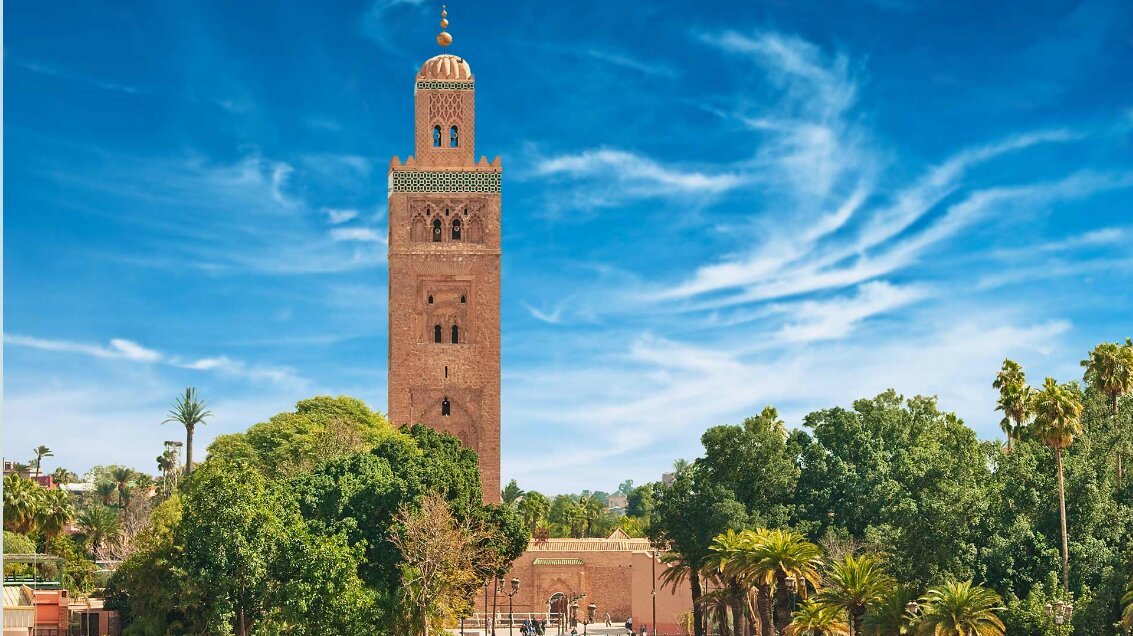Introduction
Are you planning a trip to Morocco? With its vibrant culture, stunning landscapes, and rich history, Morocco is a popular destination for travelers from around the world. However, before you embark on your adventure, there are a few things you should know, including insights from Marrakech travel agency, to ensure a smooth and enjoyable experience. In this guide, we will provide you with seven essential things to know before you go to Morocco.
1. Geography and Climate

Morocco is located in North Africa, bordered by the Atlantic Ocean and the Mediterranean Sea. It is a diverse country, offering a variety of landscapes, from the rugged Atlas Mountains to the vast Sahara Desert. The climate in Morocco varies depending on the region, with coastal areas experiencing mild winters and hot summers, while inland areas can have extreme temperatures.
When planning your trip, it’s important to consider the weather. The best time to visit Morocco is during spring (March to May) and autumn (September to November) when the temperatures are pleasant, and the tourist crowds are smaller.
2. Cultural Etiquette

Morocco is a predominantly Islamic country, and it’s essential to respect the local customs and traditions. When visiting mosques or religious sites, remember to dress modestly and remove your shoes before entering. Women should cover their shoulders and knees, and it’s advisable to carry a shawl or scarf for this purpose.
It’s also important to be mindful of Ramadan, the holy month of fasting. During this time, many locals observe strict fasting from sunrise to sunset. It’s respectful to avoid eating, drinking, or smoking in public during daylight hours.
3. Moroccan Cuisine

Moroccan cuisine is a delightful fusion of flavors, influenced by Arab, Berber, and Mediterranean culinary traditions. When in Morocco, be sure to try the famous tagine, a slow-cooked stew made with meat or vegetables and aromatic spices. Couscous, mint tea, and pastries like baklava are also must-try dishes.
In Moroccan culture, meals are often enjoyed as a communal affair. It’s customary to eat with your right hand and use bread as a utensil. When dining with locals, it’s polite to accept second helpings as a sign of appreciation for the food.
4. Currency and Money Matters

The official currency of Morocco is the Moroccan Dirham (MAD). It’s advisable to exchange your currency to Dirhams upon arrival at the airport or at authorized exchange offices in major cities. Credit cards are widely accepted in hotels, restaurants, and larger establishments, but it’s always a good idea to carry some cash for smaller vendors and markets.
ATMs are readily available in cities and tourist areas, but it’s recommended to inform your bank about your travel plans to avoid any issues with your cards.
5. Transportation
Facilitate your exploration with the help of Marrakech travel agency, as getting around Morocco becomes easy thanks to its well-connected transportation network. The country features a reliable train system linking major cities like Casablanca, Rabat, and Marrakech, while buses, with routes to both urban and rural areas, serve as a popular mode of transport.
For shorter distances within cities, taxis are a convenient option. However, it’s important to negotiate the fare before you start your journey, as taxis in Morocco do not use meters.
6. Safety and Security
Like any other travel destination, it’s important to take certain precautions to ensure your safety in Morocco. While the country is generally safe for tourists, it’s advisable to be vigilant, especially in crowded areas and tourist hotspots. Keep an eye on your belongings, avoid displaying expensive items, and be cautious of scams and pickpockets.
It’s also recommended to check travel advisories and register with your embassy or consulate before your trip. Following local customs and respecting the culture will also help ensure a positive and safe experience.
7. Popular Destinations
Morocco offers a wide range of attractions and destinations to explore. From the bustling streets of Marrakech to the blue city of Chefchaouen and the ancient ruins of Volubilis, there is something for every traveler.
Other must-visit destinations include the coastal town of Essaouira, the imperial city of Fes, and the stunning landscapes of the Atlas Mountains and the Sahara Desert. Each city and region in Morocco has its own unique charm and attractions, so be sure to plan your itinerary accordingly.
Conclusion
With its captivating culture, stunning landscapes, and warm hospitality, Morocco is a destination that will leave you spellbound. By considering insights from Marrakech travel agency and keeping these seven essential things in mind before you go, you’ll be well-prepared to make the most of your trip and create unforgettable memories.

FAQs
1. Is Morocco a safe country to visit?
Morocco is generally safe for tourists, but it’s important to take precautions and be vigilant, especially in crowded areas and tourist hotspots.
2. What is the best time to visit Morocco?
The best time to visit Morocco is during spring (March to May) and autumn (September to November) when the temperatures are pleasant, and the tourist crowds are smaller.
3. Can I use credit cards in Morocco?
Credit cards are widely accepted in hotels, restaurants, and larger establishments. However, it’s advisable to carry some cash for smaller vendors and markets.
4. What are some must-try dishes in Morocco?
Some must-try dishes in Morocco include tagine, couscous, mint tea, and pastries like baklava.
5. What are some popular destinations in Morocco?
Popular destinations in Morocco include Marrakech, Chefchaouen, Fes, Essaouira, the Atlas Mountains, and the Sahara Desert.


0 Comment